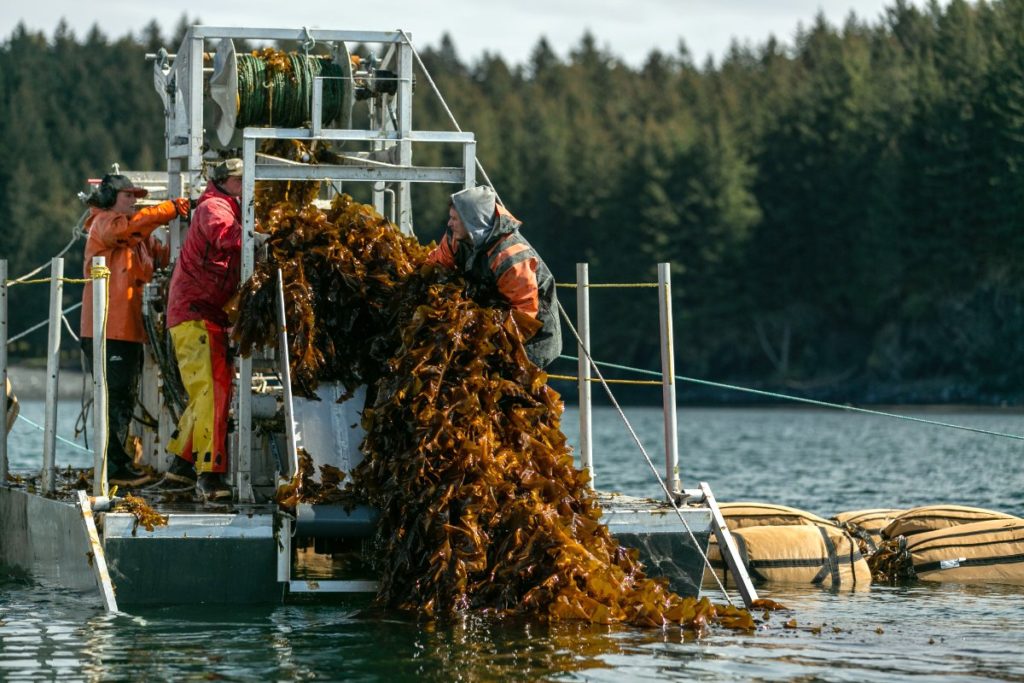Can Small Seaweed Farms Help Kelp Scale Up?
Lynn Fantom, Civil Eats - 03/16/2022

Harvesting Kelp in Alaska. (Photo credit: Rachelle Hacmac). Photo from Civil Eats' article.
Fantom's article explores how companies are capitalizing on US consumers' small, but expanding awareness and demand for seaweed products.
Touching on its capacity as a carbon sink, use as fertilizer, and potential role as methane-reducing livestock feed, the article mostly focuses on edible seaweed and its rising popularity. While some farms are just getting big (especially with Alaska's current permitting regulations), companies like Atlantic Sea Farms are creating a network of small kelp farms by providing seed and a guaranteed market.
This scaling up or "massification" by means of dispersed farms allows more of a sense of stewardship than large, individually owned farms and acknowledges the skill and knowledge of existing farmers.
Seaweed Commons is still asking questions about sizing up the seaweed industry, though. Even with efforts to empower individual farmers, are we ready for a massive increase in kelp demand? If seed is being distributed from a single entity how will biodiversity and genetic integrity be preserved in our inter-tidal kelp forests? Will scaling-up allow for harvest methods that promote rather than deplete seaweed's carbon storage capacity, habitat creation, and everything else it is already doing to "save the world"?

